I went onboard the largest container ship to ever use an East Coast port and found a visual representation of American spending during the pandemic
Thomas Pallini

Touring the Port of New York and New Jersey.Thomas Pallini/Insider
- The CMA CGM Marco Polo is the largest container ship to ever call the US East Coast.
- With a maximum capacity of 16,022 TEUs, Marco Polo is a visual representation of how much Americans purchased during the pandemic.
Ocean shipping has been thrust into the limelight during the shipping crisis as the public now realizes the critical role of container ships in keeping the world's economy functioning smoothly.
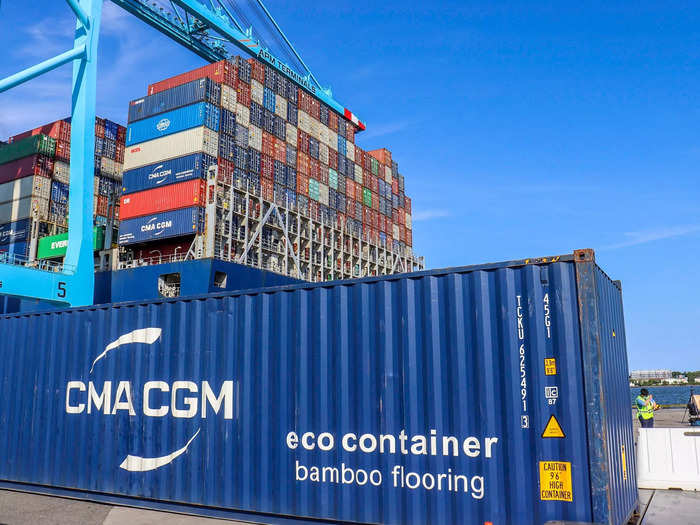
Touring the Port of New York and New Jersey. Thomas Pallini/Insider
The backlog of container ships waiting to enter Southern California ports is spreading across the US, as Americans buy more and more goods. And the rising tide of consumerism during the pandemic has lifted all ports, including those on the US East Coast.
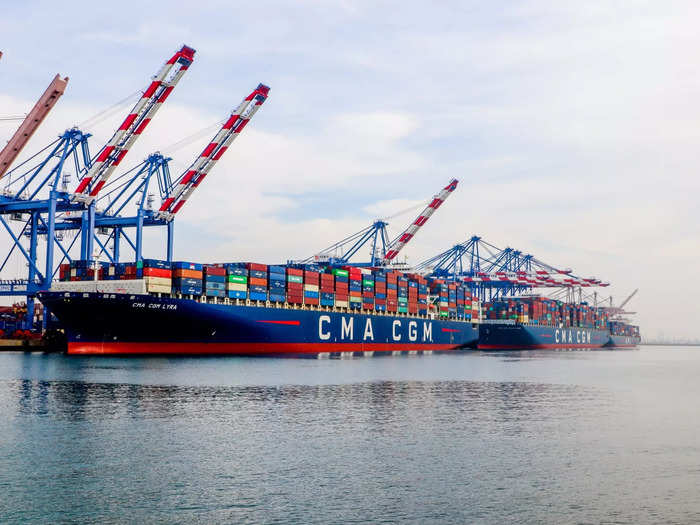
Touring the Ports of Los Angeles and Long Beach. Thomas Pallini/Insider
In May, the CMA CGM Marco Polo became the largest ship to ever call the East Coast. The Port of New York and New Jersey was the first American stop on a long voyage from Asia that was previously impossible for a ship of its size.
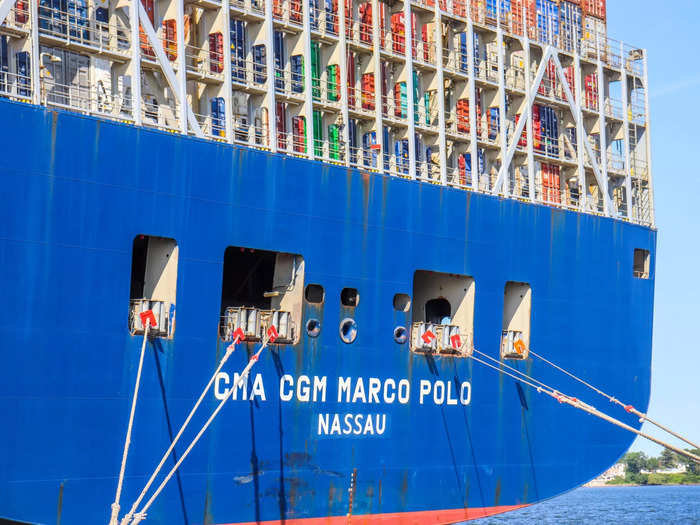
Touring the Port of New York and New Jersey. Thomas Pallini/Insider
CMA CGM Marco Polo boasts a maximum capacity of 16,022 twenty-foot-equivalent units, or TEUs for short. One 20-foot container equals one TEU with the larger 40-foot containers equaling two TEUs.
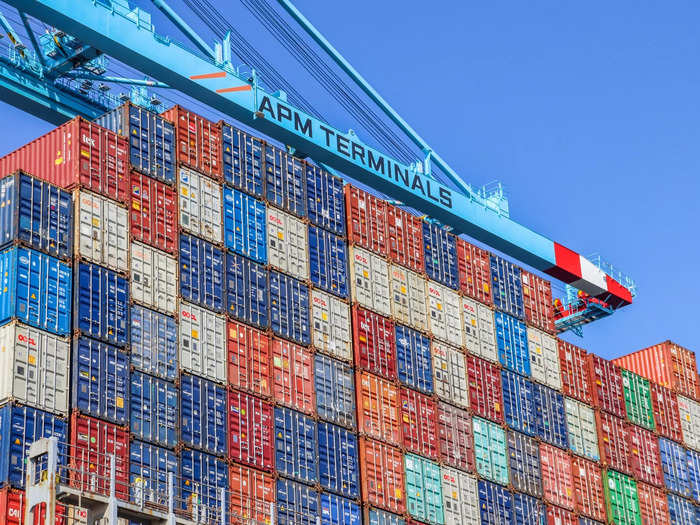
Touring the Port of New York and New Jersey. Thomas Pallini/Insider
The Bayonne Bridge guarding Newark Bay only had clearance for 12,500-TEU ships until 2019. The Port Authority of New York and New Jersey elevated the roadway connecting Bayonne, New Jersey and Staten Island, New York in a $1.7 billion project to accommodate ships as large as 18,000 TEUs, just in time for the unforeseen pandemic.

Touring the Port of New York and New Jersey. Thomas Pallini/Insider
It didn't take long for the ships calling the port to grow larger in size. The 15,072-TEU CMA CGM Brazil arrived at the port in September 2020, soon followed by the Marco Polo in May 2021.
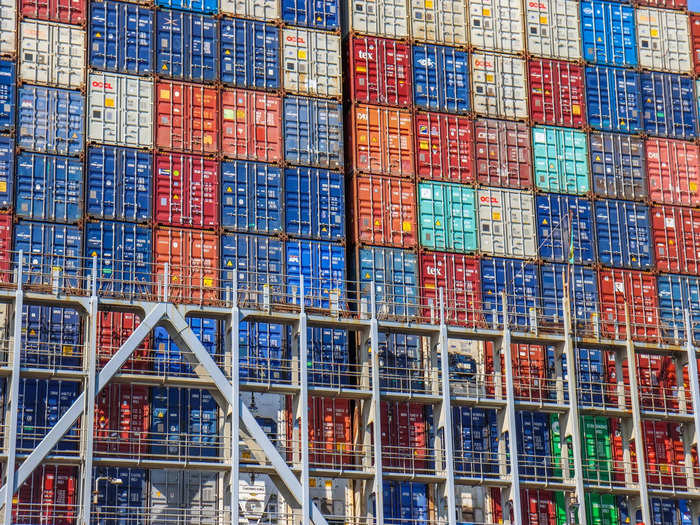
Touring the Port of New York and New Jersey. Thomas Pallini/Insider
Insider went onboard the CMA CGM Marco Polo while it was docked in New Jersey. Here's what it's like onboard.
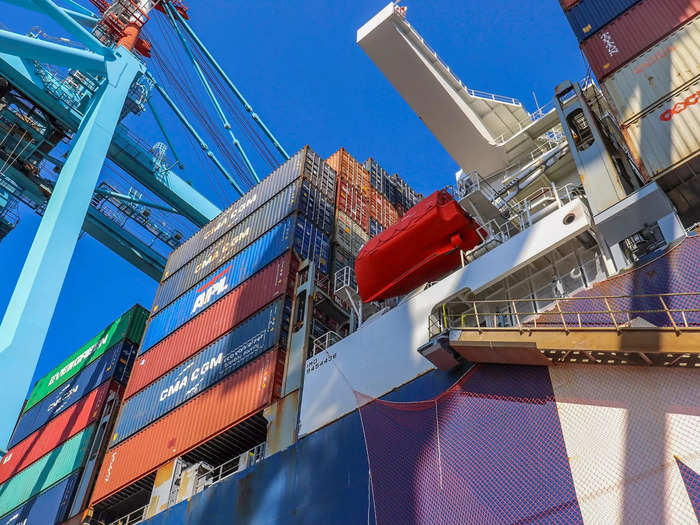
Touring the Port of New York and New Jersey. Thomas Pallini/Insider
A long, narrow gangway is the only way on or off the Marco Polo for anything that isn't a container. It's a long way up as the gangway sways with the weight of people on it.
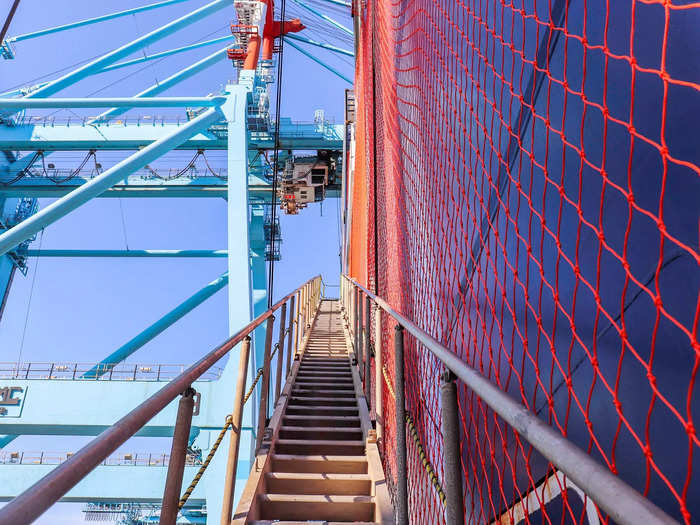
Touring the Port of New York and New Jersey. Thomas Pallini/Insider
Registered in the Bahamas, the CMA CGM Marco Polo is a nine-year-old ship delivered to the Marseille, France-based shipping giant in November 2012.
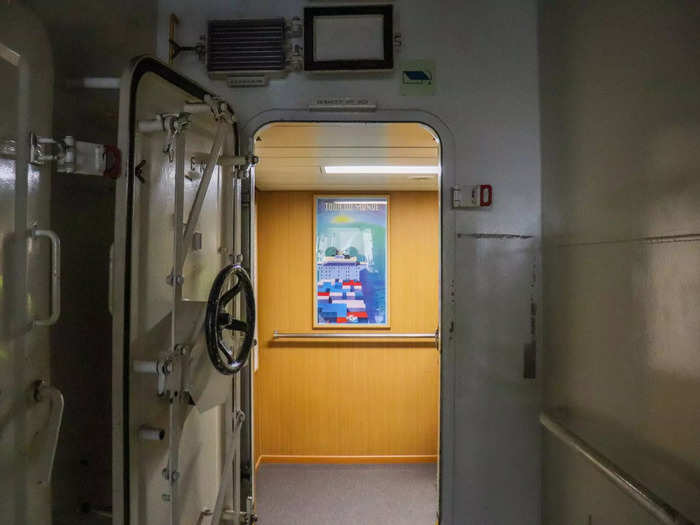
Touring the Port of New York and New Jersey. Thomas Pallini/Insider
Hallways run the length of the ship's massive tower with rooms on each side.
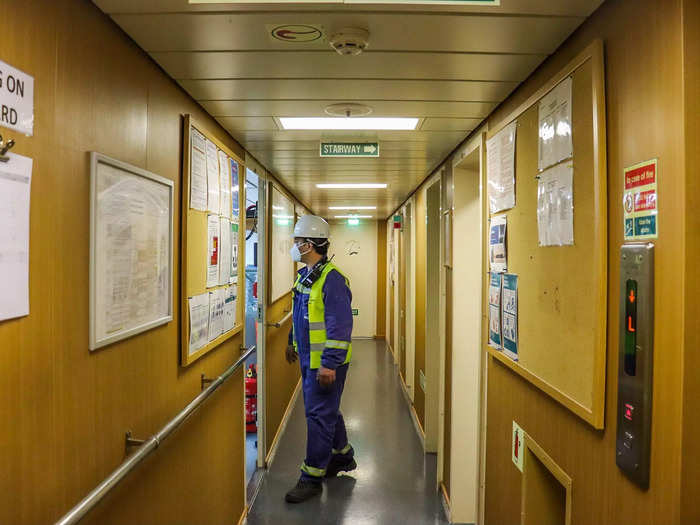
Touring the Port of New York and New Jersey. Thomas Pallini/Insider
Our tour began in the ship's office, also known as the cargo office, where we met Captain Zeljko Mioc.
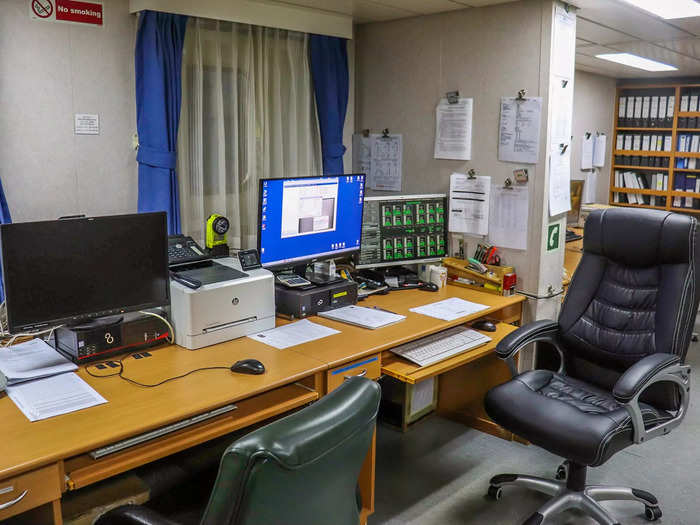
Touring the Port of New York and New Jersey. Thomas Pallini/Insider
The Croatian captain has served in the maritime industry for more than 30 years, traversing the globe on container ships. Before that, he worked issuing airplane tickets at an airport.
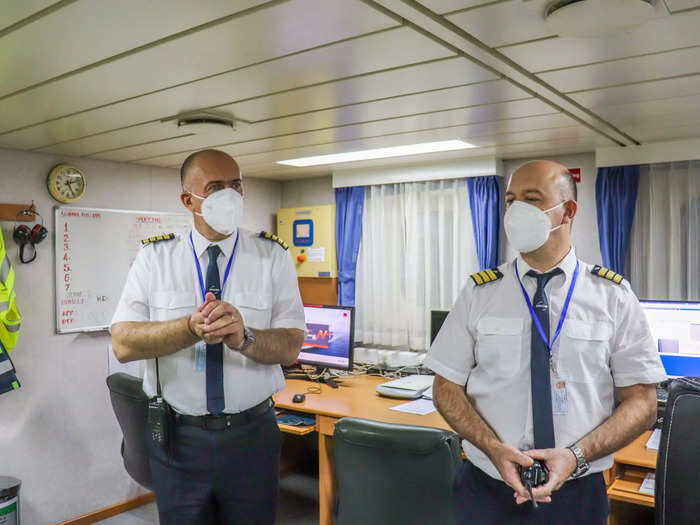
Touring the Port of New York and New Jersey. Thomas Pallini/Insider
Marco Polo started this voyage in China, with the crossing via the Suez Canal taking around three weeks with a port call in Halifax, Canada before arriving in New York Harbor.
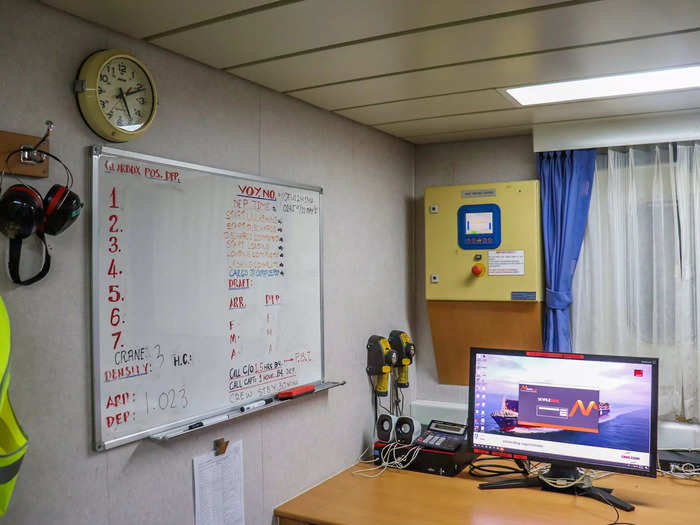
Touring the Port of New York and New Jersey. Thomas Pallini/Insider
Passing through the Suez Canal was normal, the crew described, even just a few weeks after the Ever Given had run aground and blocked the path for other ships.
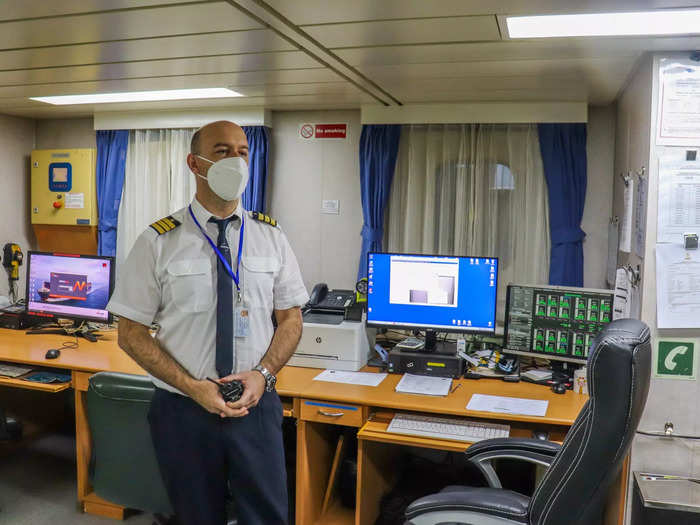
Touring the Port of New York and New Jersey. Thomas Pallini/Insider
The next stop was the bridge, located on the top floor of the tower. Luckily, there was an elevator in addition to the main stairwell to take us up.
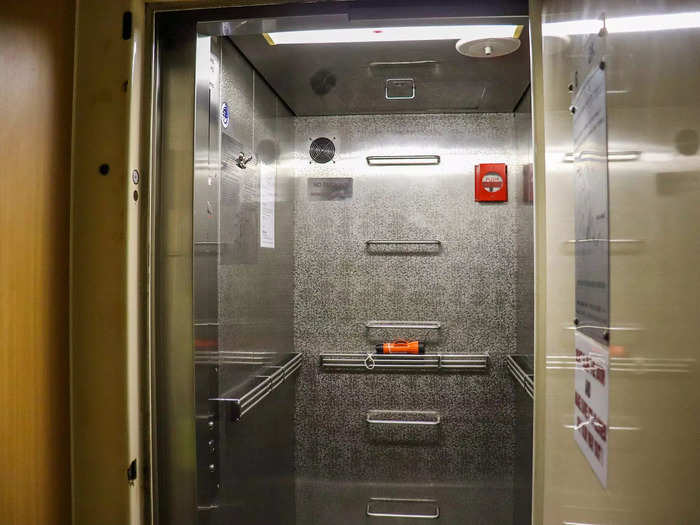
Touring the Port of New York and New Jersey. Thomas Pallini/Insider
Directories identify the areas of interest on each floor, helping the crew find their way around the ship.
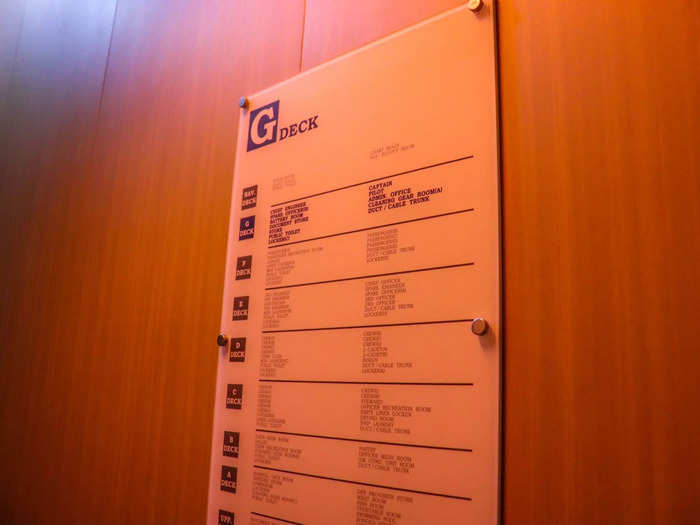
Touring the Port of New York and New Jersey. Thomas Pallini/Insider
Like a hotel, the higher floors of the tower houses the crew bunks and staterooms for the ship’s officers. The higher the floor, the greater the rank of the crewmember.
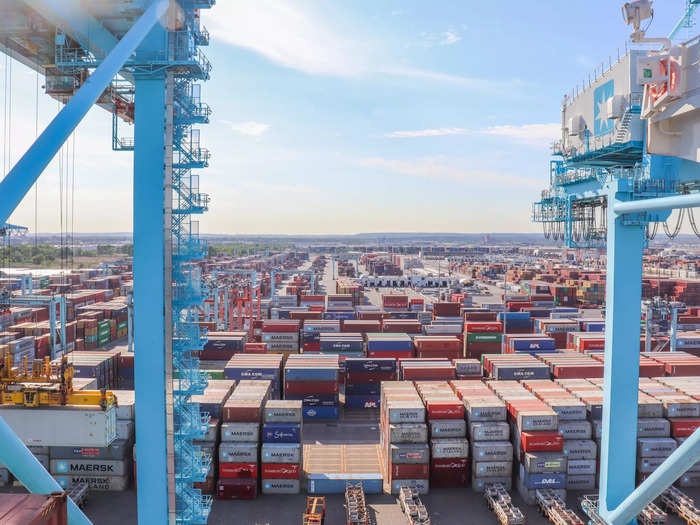
Touring the Port of New York and New Jersey. Thomas Pallini/Insider
The captain and chief engineer reside on "G deck," for example, directly below the bridge.
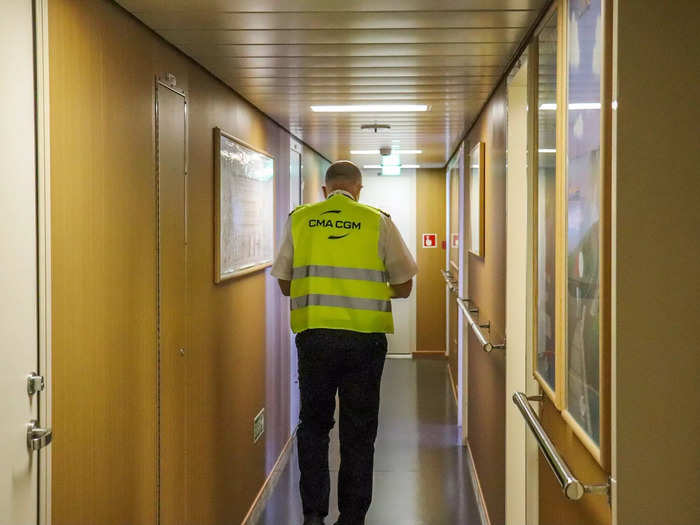
Touring the Port of New York and New Jersey. Thomas Pallini/Insider
With the amount of time the average crewmember spends on the ship, it's likely that they'll soon know its directory by heart.
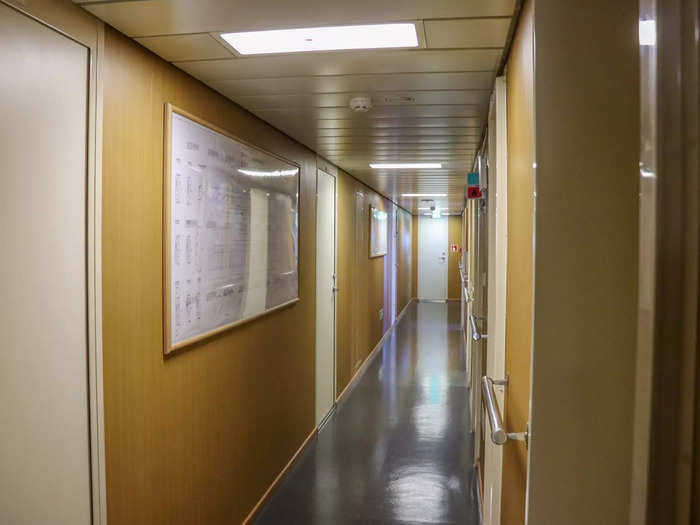
Touring the Port of New York and New Jersey. Thomas Pallini/Insider
Many of the rooms contain office-like workspaces with plenty of open space inside.
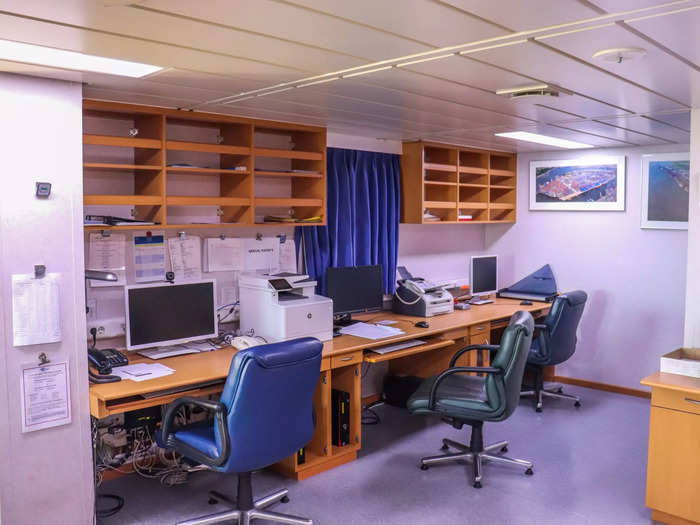
Touring the Port of New York and New Jersey. Thomas Pallini/Insider
The corridors are largely identical but some feature artwork to break up the monotony including a print of Vincent Van Gogh's "The Starry Night."

Touring the Port of New York and New Jersey. Thomas Pallini/Insider
Posters on the staircase leading up the bridge are also reminiscent of old airline advertisements highlighting exotic locals that this ship visits on a yearly basis.
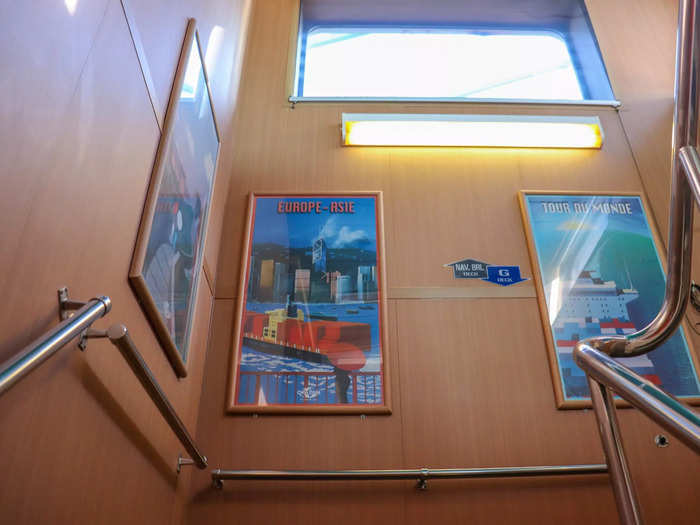
Touring the Port of New York and New Jersey. Thomas Pallini/Insider
The very top floor of the tower is the "navigation deck" which houses the bridge, also known as the wheelhouse, from where the ship is piloted.
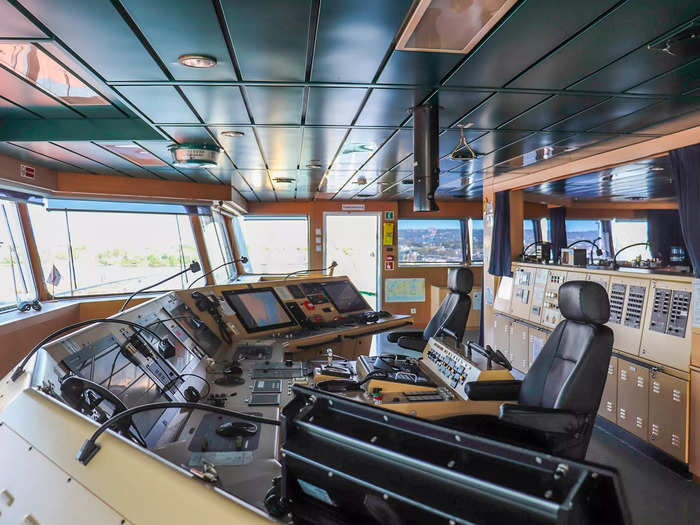
Touring the Port of New York and New Jersey. Thomas Pallini/Insider
Views from the bridge are expansive with a line of sight for miles on a clear day, helping the crew navigate and monitor other ships in their vicinity.
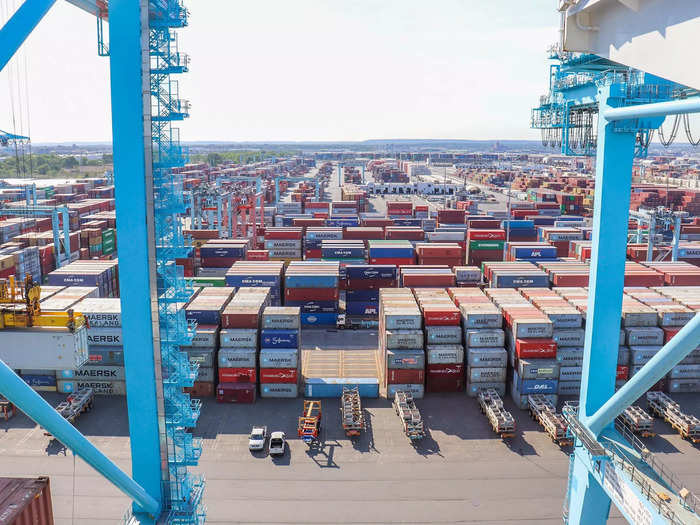
Touring the Port of New York and New Jersey. Thomas Pallini/Insider
Even the New York City skyline was visible clear as day from the berth around five miles away.
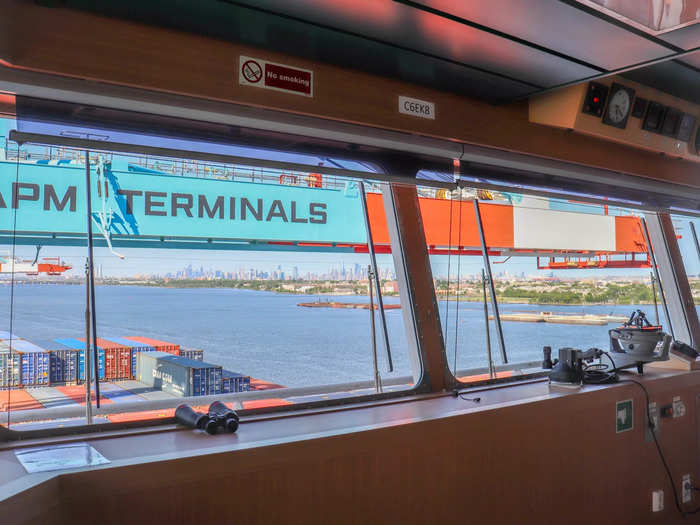
Touring the Port of New York and New Jersey. Thomas Pallini/Insider
The navigation deck is the limit for the containers as anything stack higher might impede the crew's line of sight.
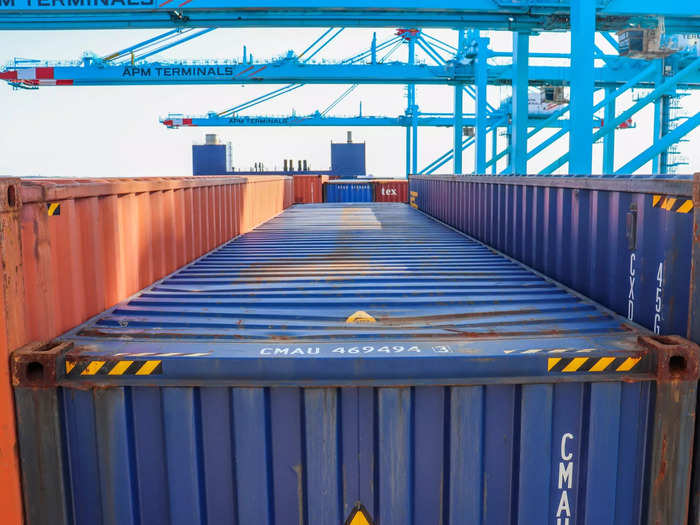
Touring the Port of New York and New Jersey. Thomas Pallini/Insider
A maximum of seven cranes, each taller than the ship itself, serviced the ship during its time in New Jersey.
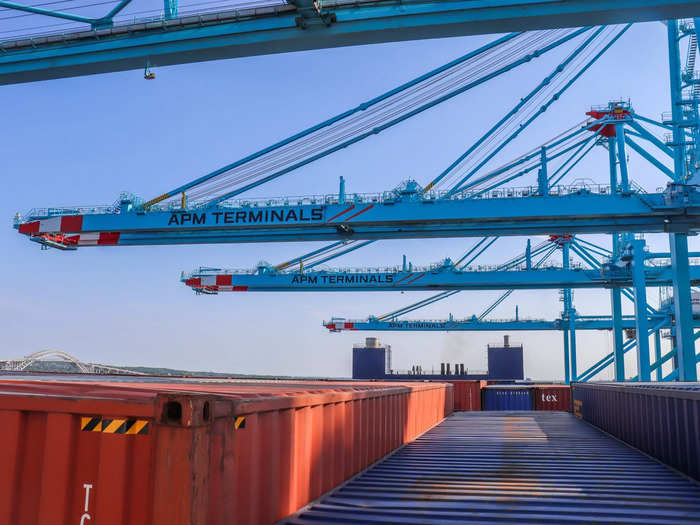
Touring the Port of New York and New Jersey. Thomas Pallini/Insider
Trucks wait alongside the ship to receive their containers and then bring them elsewhere in the port where they'll be transferred to tractor-trailers.
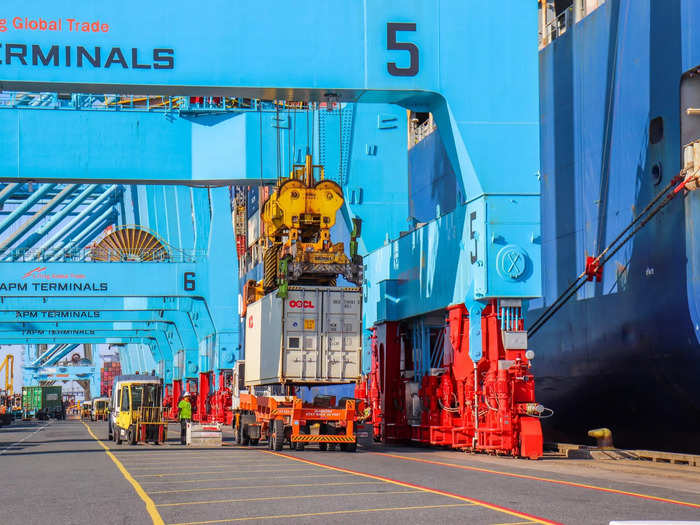
Touring the Port of New York and New Jersey. Thomas Pallini/Insider
Longshoremen sitting 200 feet off of the ground pluck the containers off the ship one by way in a fluid motion that takes a surprisingly short amount of time given their weight.
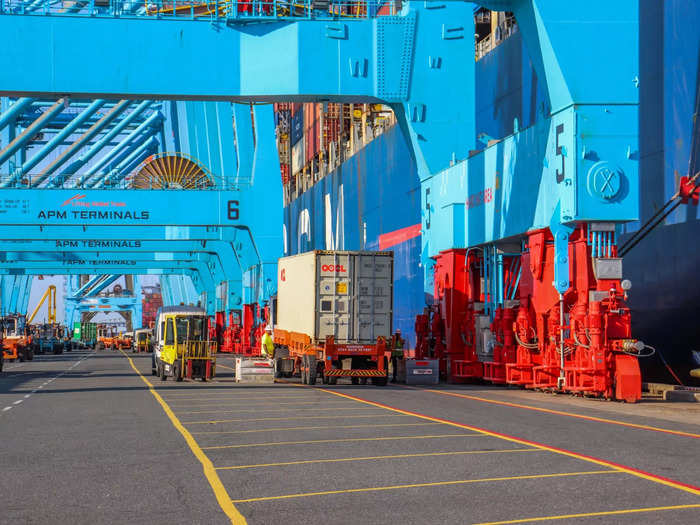
Touring the Port of New York and New Jersey. Thomas Pallini/Insider
Back in the bridge, a small steering wheel is tasked with maneuvering the massive ship.
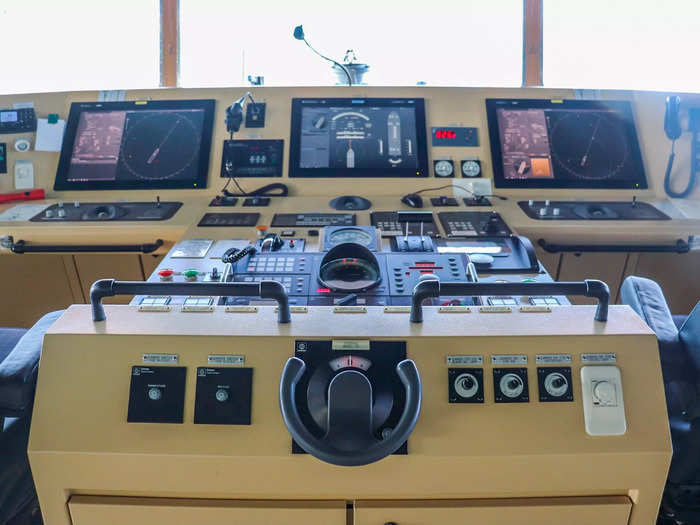
Touring the Port of New York and New Jersey. Thomas Pallini/Insider
But unlike in days past, there doesn't always have to be someone with both hands on the wheel.
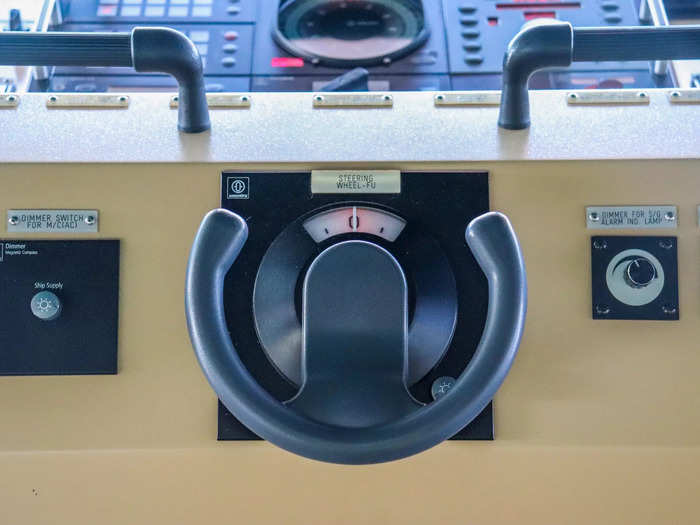
Touring the Port of New York and New Jersey. Thomas Pallini/Insider
Track pilot allows the ship to virtually drive itself, similarly to autopilot on an airplane.
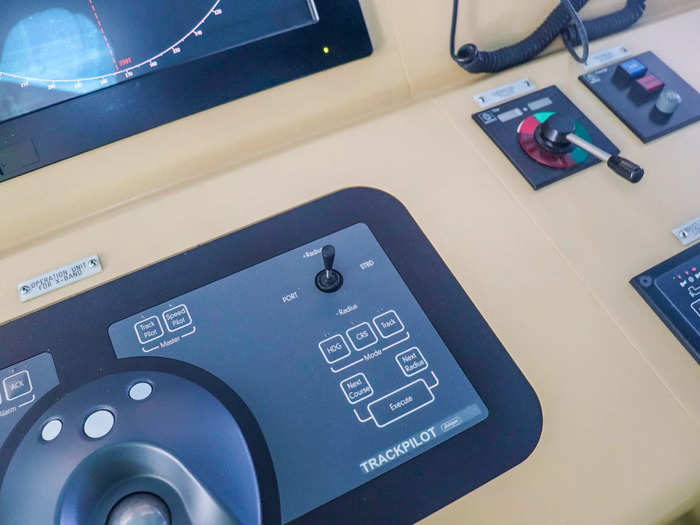
Touring the Port of New York and New Jersey. Thomas Pallini/Insider
The bridge is comparable to the cockpit of an airplane and many of the same gestures can be found in both. The difference is that a ship's bridge is around 10 times the size of an average airplane cockpit.
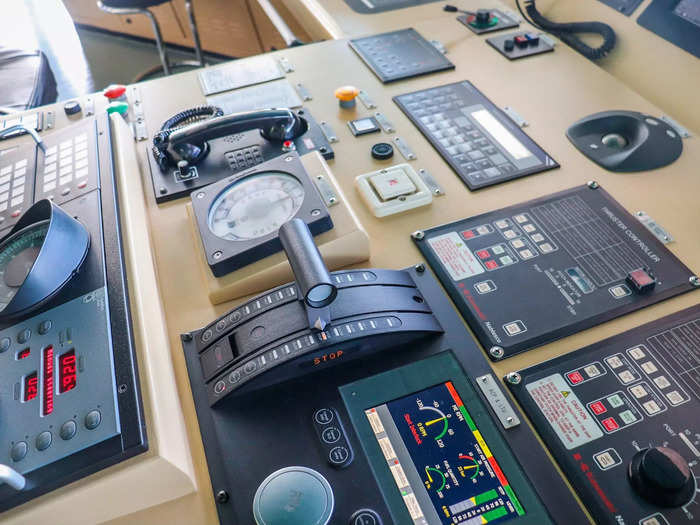
Touring the Port of New York and New Jersey. Thomas Pallini/Insider
Electronic charts help the crew navigate, just like on modern airplanes. "Before we had paper charts and now everything is electronic," Mioc said.
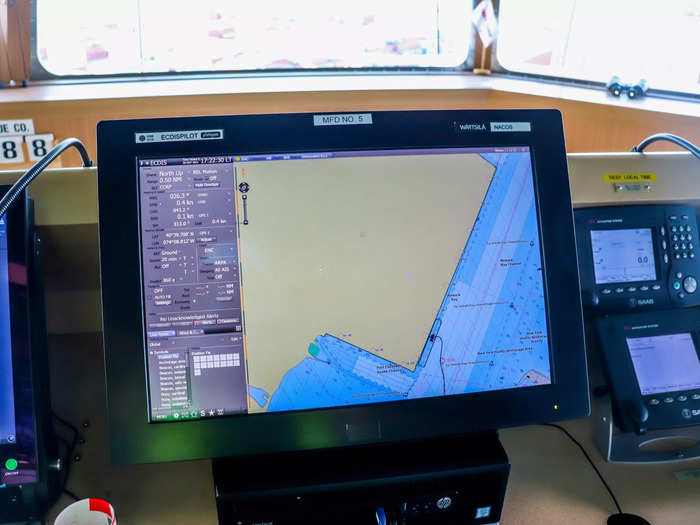
Touring the Port of New York and New Jersey. Thomas Pallini/Insider
A black line on the chart shows the ship's path for the past 24 hours. In Marco Polo's case, it arrived in New York Harbor and made a loop around the Statue of Liberty.
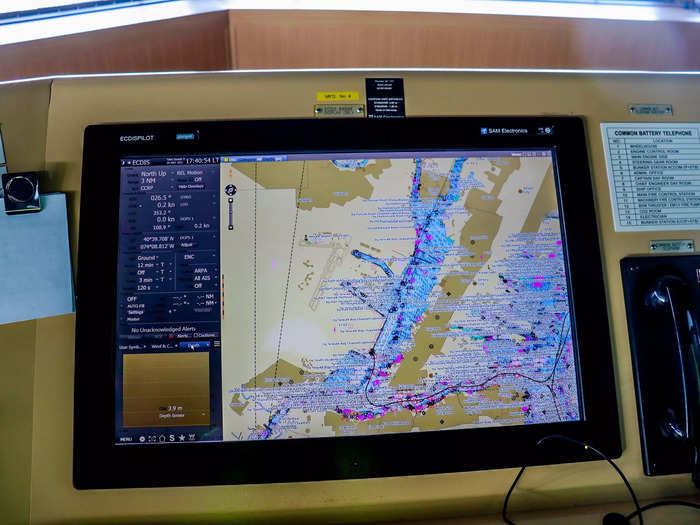
Touring the Port of New York and New Jersey. Thomas Pallini/Insider
On the side of the screen is a gauge that identifies the wind direction and its speed. Ships the size of the Marco Polo have a wind sail that can affect their course, especially while sitting idle at anchor.
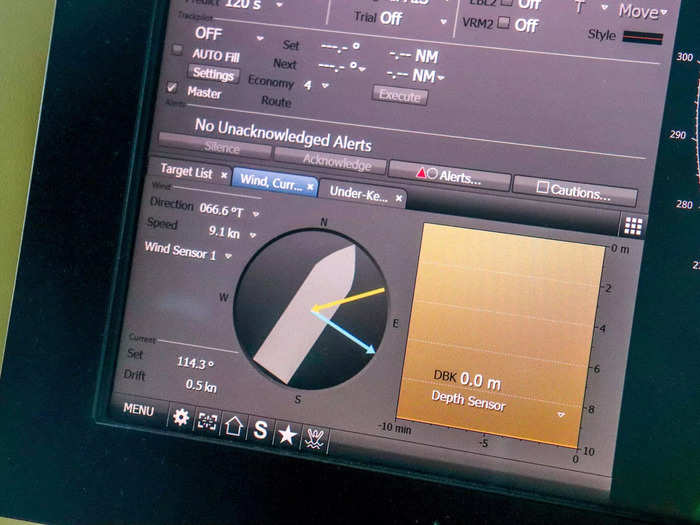
Touring the Port of New York and New Jersey. Thomas Pallini/Insider
Depth is another important factor since the ship can run aground if the water is too shallow.
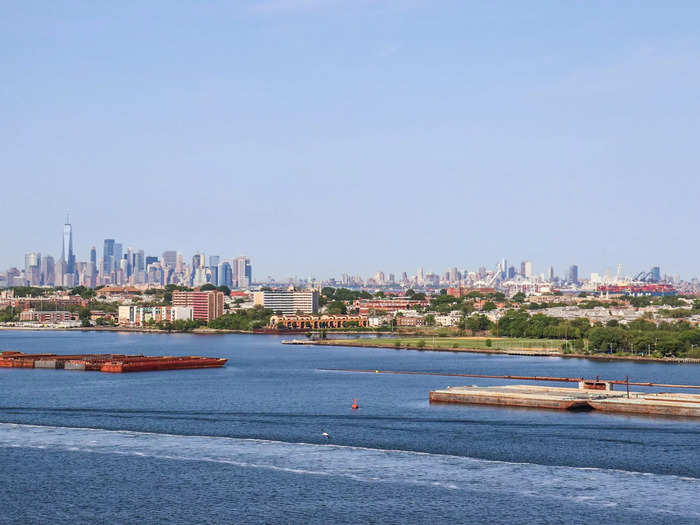
Touring the Port of New York and New Jersey. Thomas Pallini/Insider
Even with the conversion to digital, shelves in the bridge still store paper-bound charts, manuals, and other necessities.
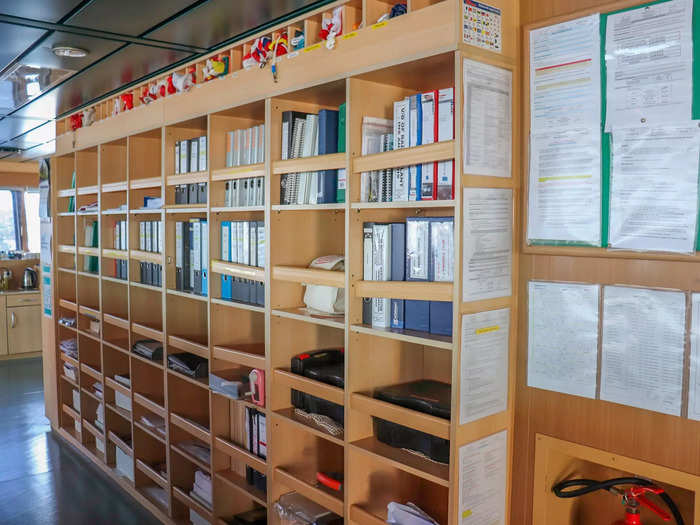
Touring the Port of New York and New Jersey. Thomas Pallini/Insider
Some charts, like posters, are taped up to the walls for easy reference.
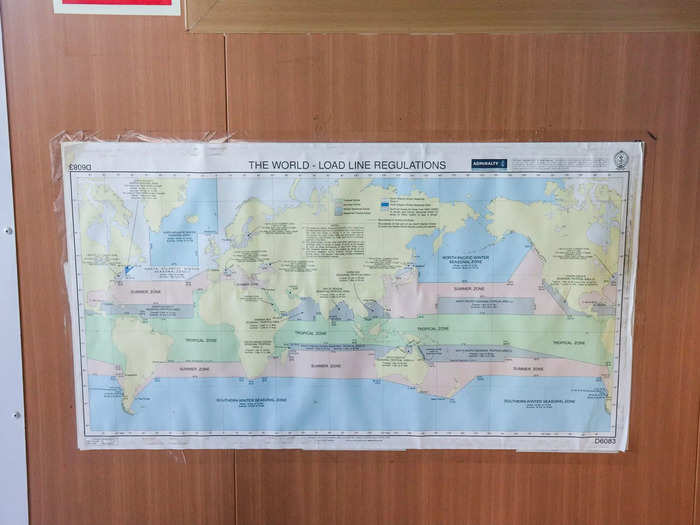
Touring the Port of New York and New Jersey. Thomas Pallini/Insider
Very high-frequency radios, or VHF radios for short, allow the ship to communicate with others in the immediate area as well as harbor pilots. Ships have come a long way from sending messages via Morse code.
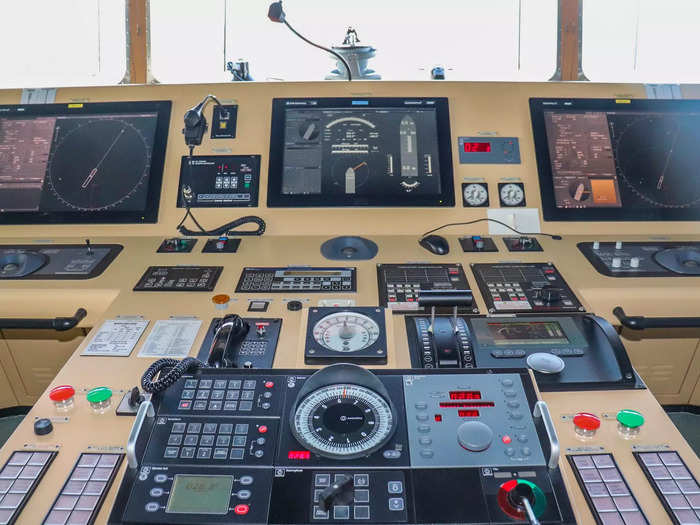
Touring the Port of New York and New Jersey. Thomas Pallini/Insider
Two types of radar, H-band and S-band help the Marco Polo avoid other ships, especially in times of poor visibility. S-band is the long-distance radar that helps the ship see beyond just its immediate area while H-band is better for shorter distances.

Touring the Port of New York and New Jersey. Thomas Pallini/Insider
H-band is also better at receiving distress signals from other vessels and is a maritime requirement. Mioc has never had to attend to a distress call as a captain but did say that he has found himself in "distress situations."
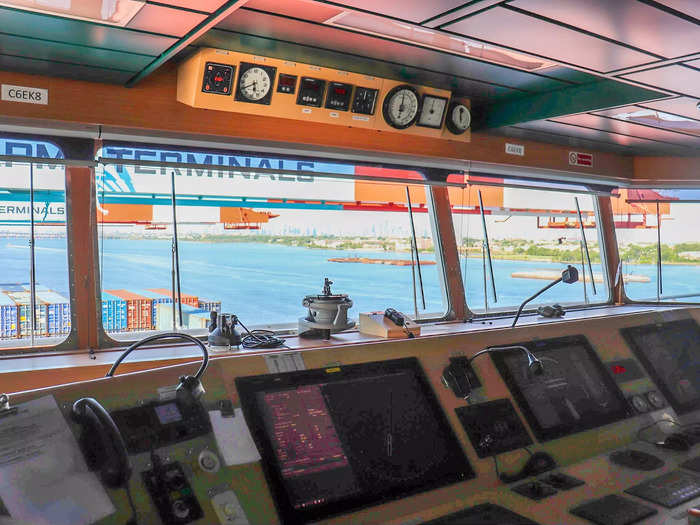
Touring the Port of New York and New Jersey. Thomas Pallini/Insider
In the center of the console is a general compass while above is the magnetic compass.
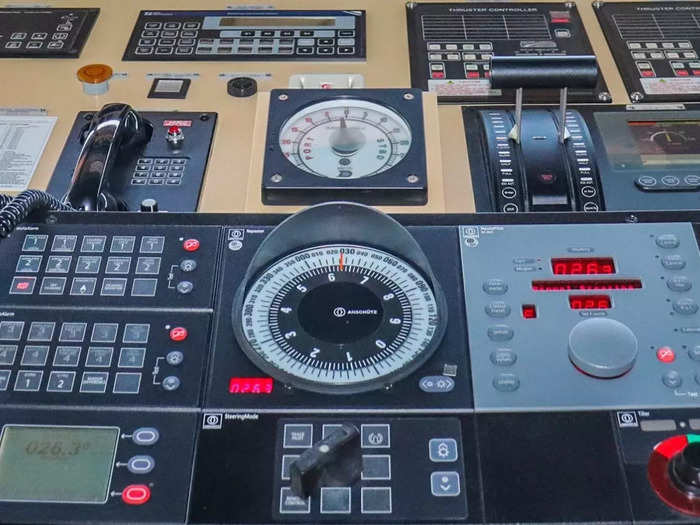
Touring the Port of New York and New Jersey. Thomas Pallini/Insider
Instruments above the windows also give the pilot key information like engine rotations per minute and the rate of turn.
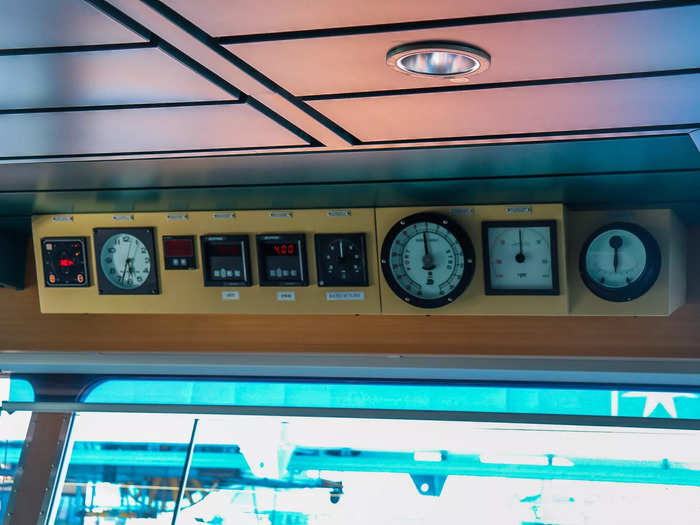
Touring the Port of New York and New Jersey. Thomas Pallini/Insider
Only two crew members are typically in the bridge while the ship is in open ocean, Mioc said.
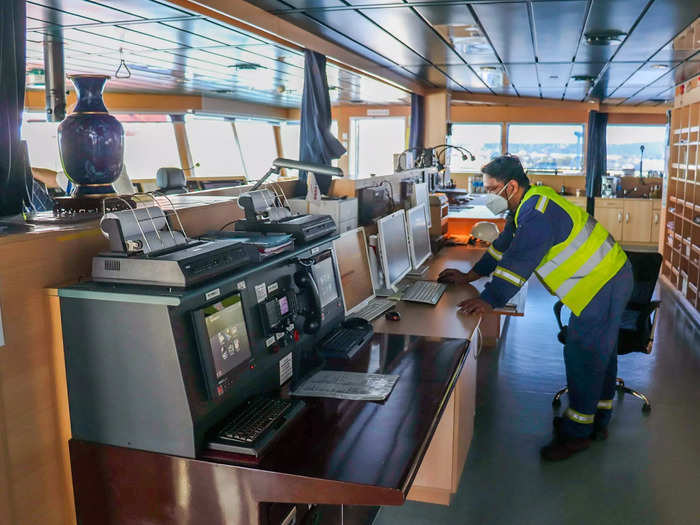
Touring the Port of New York and New Jersey. Thomas Pallini/Insider
The captain, most times, is traversing the ship and checking to see that its operation is running smoothly.
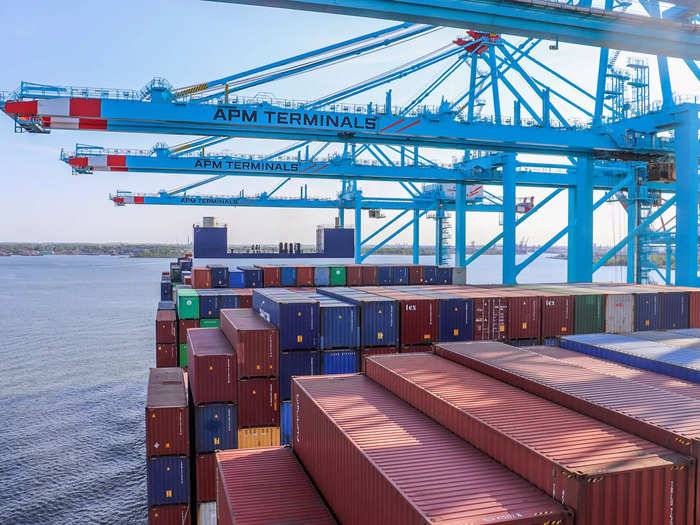
Touring the Port of New York and New Jersey. Thomas Pallini/Insider
Cameras around the ship also let the captain see everything that's going on.
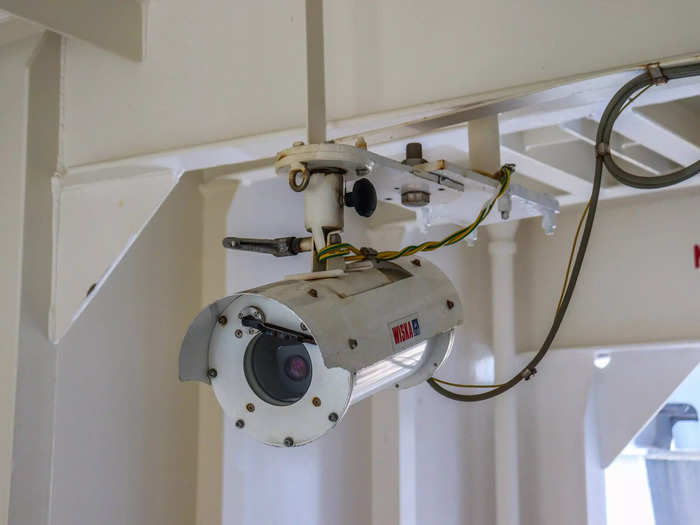
Touring the Port of New York and New Jersey. Thomas Pallini/Insider
But while the captain doesn't spend most of his days on the bridge, he will be present during times including periods of bad weather, intense vessel traffic, or maneuvering.
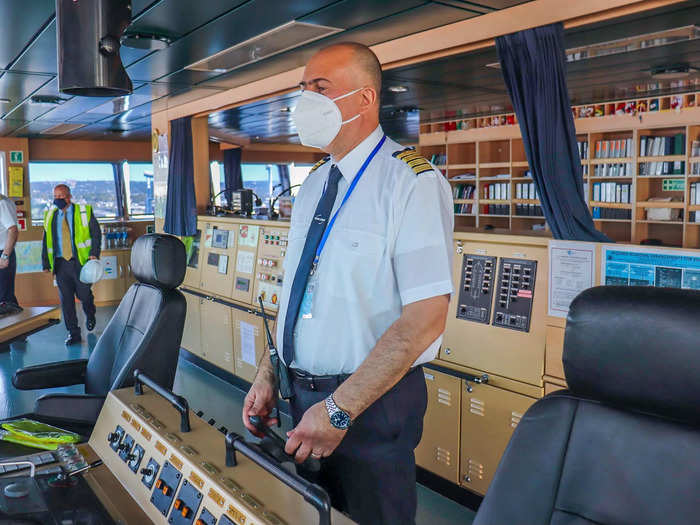
Touring the Port of New York and New Jersey. Thomas Pallini/Insider
The bridge also features a small kitchenette with a coffee maker.
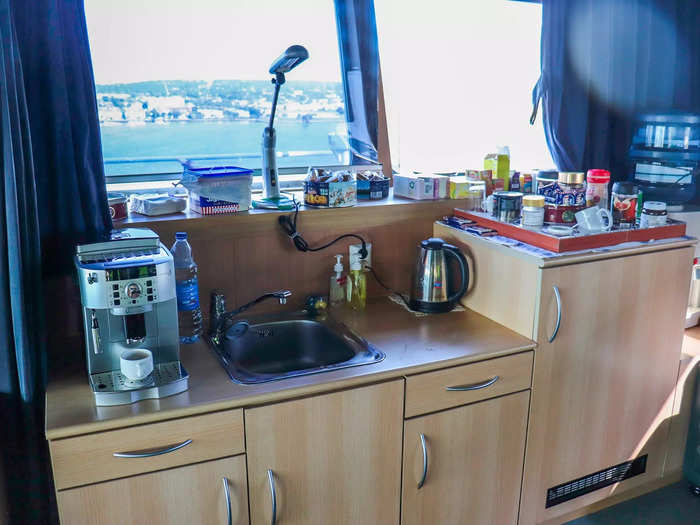
Touring the Port of New York and New Jersey. Thomas Pallini/Insider
And just beside the kitchenette is a small dining room-style table.
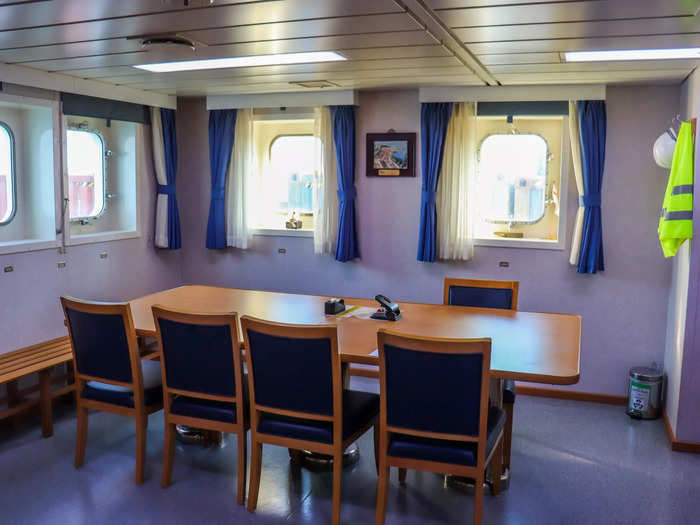
Touring the Port of New York and New Jersey. Thomas Pallini/Insider
Crews spend a few days in each port before moving on to the next one, with sea journeys often taking weeks.
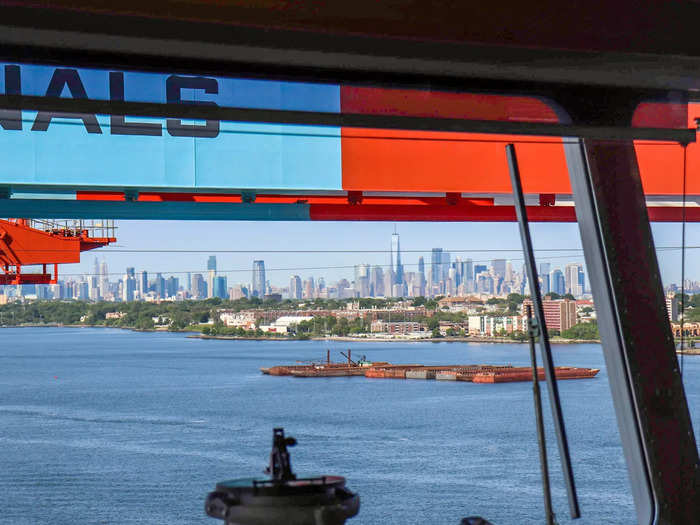
Touring the Port of New York and New Jersey. Thomas Pallini/Insider
After New York, the next stop for Marco Polo was Charleston, South Carolina where it also broke records.
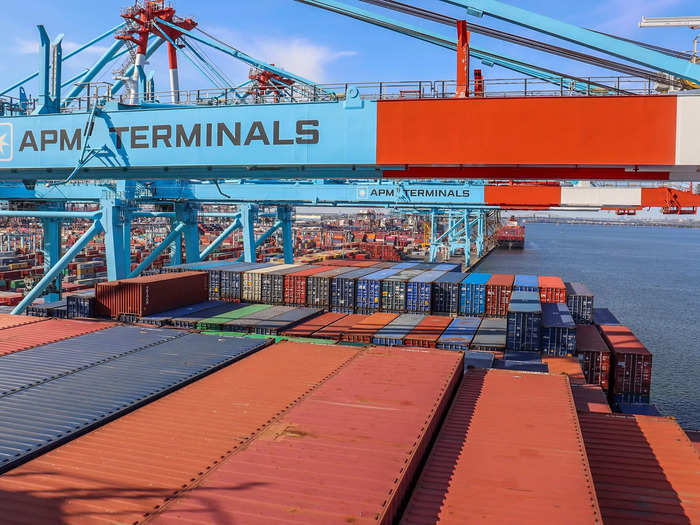
Touring the Port of New York and New Jersey. Thomas Pallini/Insider
The life of a mariner can be filled with travel but there can be periods of extreme boredom while at sea.
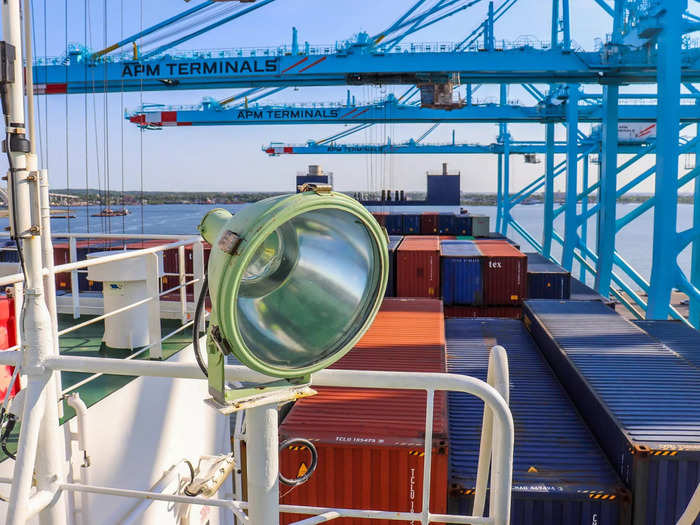
Touring the Port of New York and New Jersey. Thomas Pallini/Insider
Each mariner has a job to do while on the ship but once workers are off the clock, they're still bound to the ship while it's on the water.
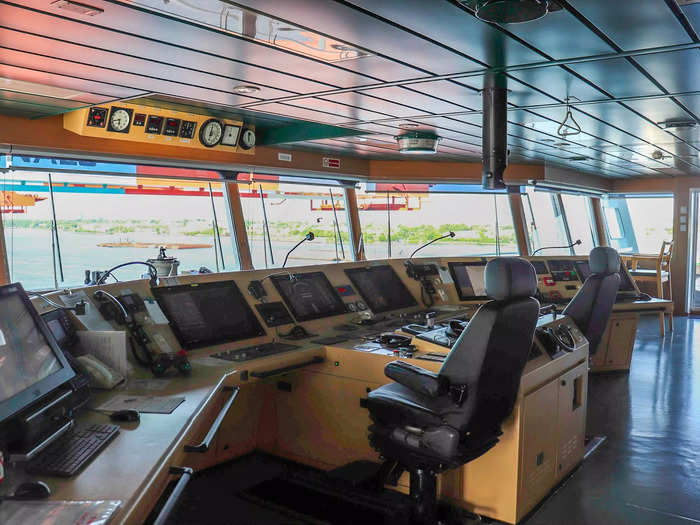
Touring the Port of New York and New Jersey. Thomas Pallini/Insider
There is a gymnasium and recreation room on the boat but we didn't have time to see either on the visit.
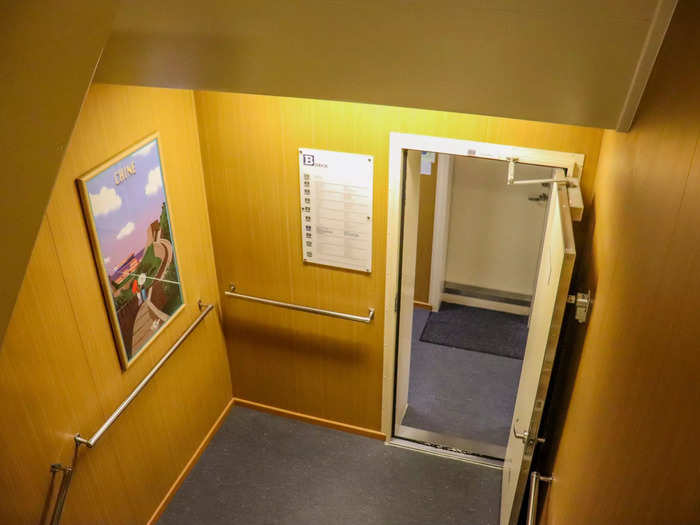
Touring the Port of New York and New Jersey. Thomas Pallini/Insider
East Coast ports have largely been spared from the backlogs affecting those in Southern California. But experts say it's only a matter of time before more ports see lines of ships waiting to enter.
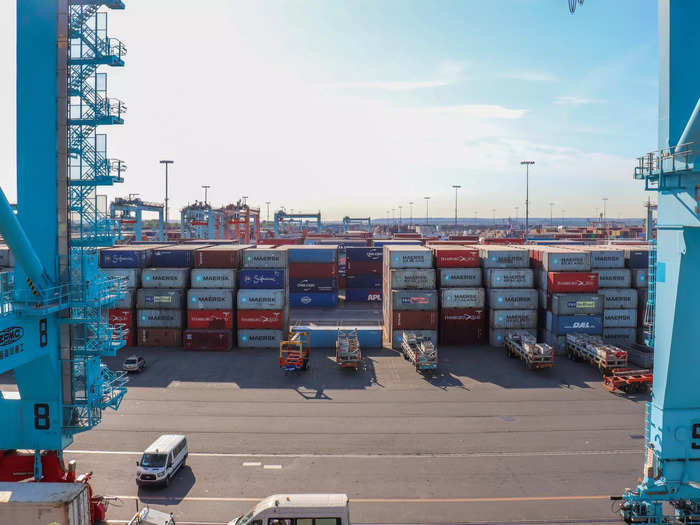
Touring the Port of New York and New Jersey. Thomas Pallini/Insider
"I think we'll see [backlogs] regardless of the coast," Nathan Strang, Flexport's director of ocean trade lane management, told Insider, noting East Coast ports like the Port of Savannah are experiencing backlogs.
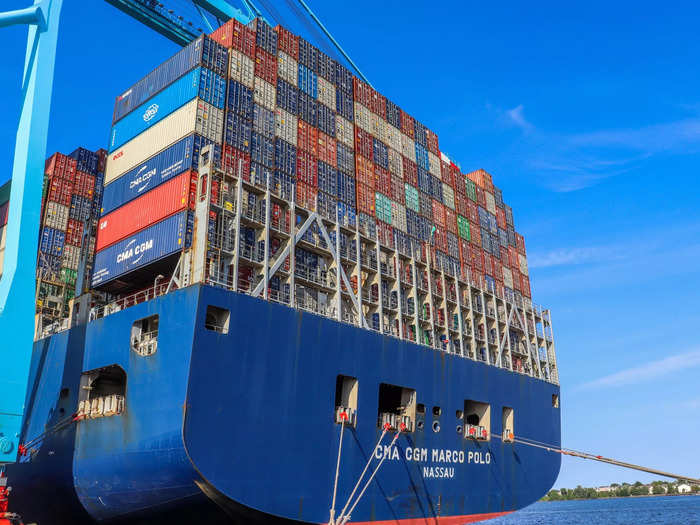
Touring the Port of New York and New Jersey. Thomas Pallini/Insider
Marco Polo's record-breaking voyage to the Port of New York and New Jersey might soon be smashed by an even larger ship.
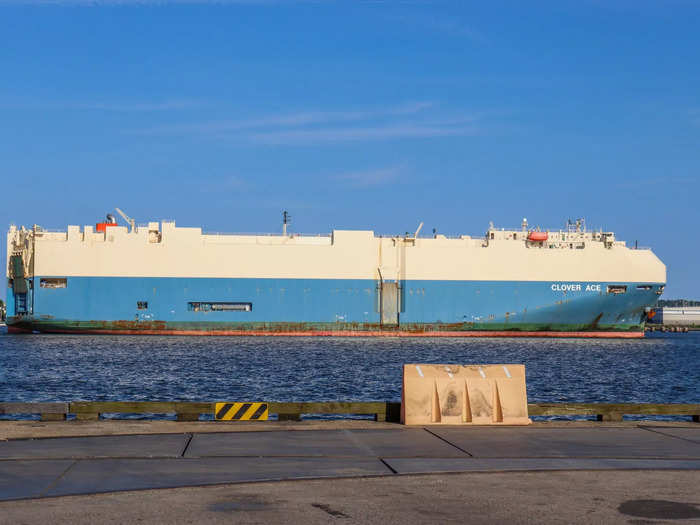
Touring the Port of New York and New Jersey. Thomas Pallini/Insider
It's the new reality in ocean shipping as more and more skyscraper-like ships seek to move hundreds of thousands, if not millions, of containers between continents every day.
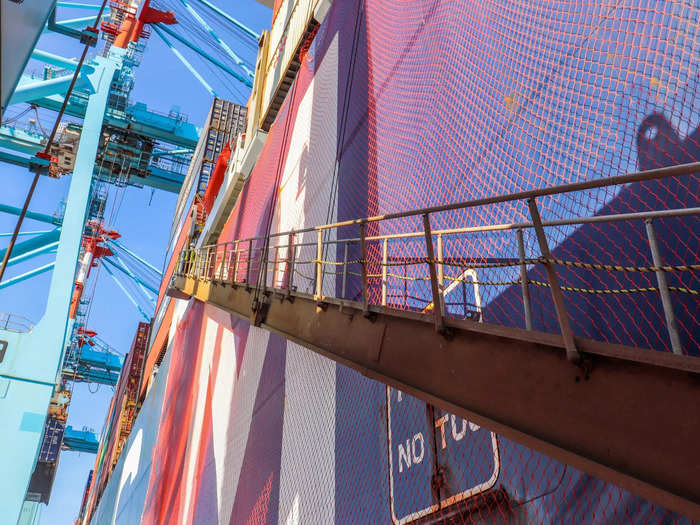
Touring the Port of New York and New Jersey. Thomas Pallini/Insider
READ MORE ARTICLES ON
Popular Right Now
Popular Keywords
Advertisement